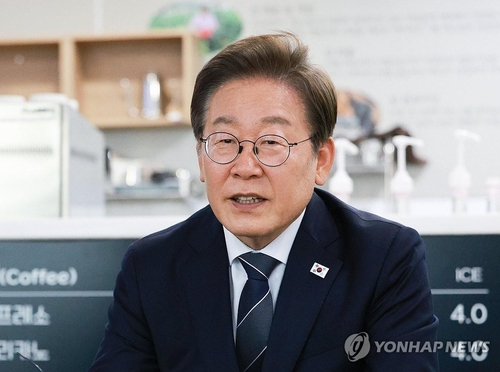- California Assembly OKs highest minimum wage in nation
- S. Korea unveils first graphic cigarette warnings
- US joins with South Korea, Japan in bid to deter North Korea
- LPGA golfer Chun In-gee finally back in action
- S. Korea won’t be top seed in final World Cup qualification round
- US men’s soccer misses 2nd straight Olympics
- US back on track in qualifying with 4-0 win over Guatemala
- High-intensity workout injuries spawn cottage industry
- CDC expands range of Zika mosquitoes into parts of Northeast
- Who knew? ‘The Walking Dead’ is helping families connect
Lee set to depart for Canada to attend G7 summit
President Lee Jae-myung is set to depart for Canada on Monday to attend the Group of Seven (G7) summit, marking his diplomatic debut on the global stage just less than two weeks into his term in office.
Lee will embark on a three-day trip to Alberta to attend an expanded G7 summit session as a guest and hold meetings with leaders of major economies.
The high-profile gathering offers Lee a key opportunity to signal that South Korea’s top-level diplomacy is back on track, following a six-month leadership vacuum caused by former President Yoon Suk Yeol’s failed martial law attempt in December.

“Through the occasion, President Lee aims to build rapport with global leaders and lay the groundwork for achieving tangible results on key issues, including trade,” presidential spokesperson Kang Yu-jung told reporters.
“It is expected to elevate South Korea’s stature on the global stage by showcasing the greatness of Koreans who have overcome martial law and insurrection, as well as the strength of K-democracy,” she added.
Lee’s push for pragmatic diplomacy will be tested as he seeks to engage world leaders amid escalating global challenges, including a raft of U.S. tariffs, an intensifying U.S.-China strategic rivalry, and growing military ties between Russia and North Korea.
“It will serve as a good opportunity for (the president) to take the first step toward pragmatic diplomacy centered on national interests,” National Security Adviser Wi Sung-lac said Sunday. “It will be very timely for him to have a chance to build trust early on through face-to-face meetings with the leaders of major countries, just 10 days after taking office.”
Eyes are on whether Lee will have his first in-person meeting with U.S. President Donald Trump to address pressing issues, including trade negotiations, security burden sharing, and coordination on North Korea and China.
In their phone conversation three days after Lee’s inauguration, the two leaders agreed to make efforts to reach a “mutually satisfactory” trade agreement and support working-level negotiations.
“President Lee’s position is to address these challenges through close coordination with the U.S. If the two leaders meet, it is expected to serve as momentum to drive those negotiations forward,” a senior presidential official said, noting consultations are currently under way for their meeting.
The G7 summit may also pave the way for Lee’s first meeting with Japanese Prime Minister Shigeru Ishiba as the two nations mark the 60th anniversary of diplomatic normalization next week.
During a phone call earlier this month, Lee and Ishiba reaffirmed the importance of bilateral ties between the two neighbors and expressed hope to meet in person at an early date.
Lee is also seeking to hold a trilateral meeting with Trump and Ishiba on the sidelines of the G7 summit.
“President Lee has said that the foundation of South Korea’s foreign and security policy lies in the strong South Korea-U.S. alliance and trilateral cooperation among South Korea, the U.S. and Japan,” the official said. “From that perspective, we remain open to the possibility.”
Lee’s approach to China will be closely watched, particularly as previous G7 summits have adopted increasingly firm stances on Beijing’s assertive behavior in the South China Sea and its controversial trade practices.
Navigating the geopolitical complexities of the region, Lee’s pragmatic diplomacy will demand a careful balancing act between the United States — South Korea’s longstanding security ally — and China, its largest economic partner.
Relations between Seoul and Beijing were strained under the Yoon administration, which pursued closer alignment with Washington and Tokyo on key strategic issues, including defense and regional security.
“We will coordinate and cooperate with G7 nations, but we also intend not to worsen relations with China and Russia,” the official said.












